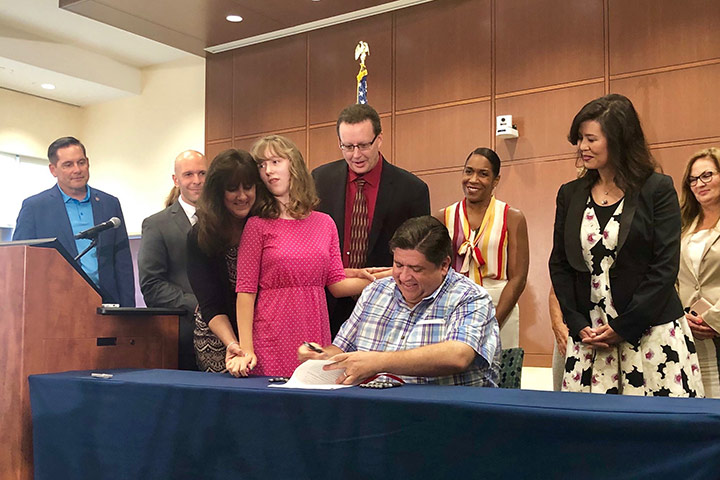The therapeutic use of medical cannabis for a number of health conditions has steadily gained acceptance across the country and around the world. Medical cannabis is derived from the marijuana plant. It is used to treat nausea, pain, inflammation and other symptoms of diseases and disorders including cancer, multiple sclerosis and epilepsy. Cannabinoids—the active natural chemicals in medical and recreational cannabis—have a variety of different effects on the body. The most well-known cannabinoids include THC, the main psychoactive component of cannabis that gives the feeling of euphoria often felt by marijuana users, and cannabidiol (CBD). These cannabinoids are now being sold over the counter in a variety of products from oils to edibles for the relief of pain, insomnia and anxiety.
In 2015, Illinois legalized the use of medical cannabis through its Medical Cannabis Patient Program (MCPP) for individuals with debilitating medical conditions that meet the state’s criteria. Medical cannabis does not require a doctor’s prescription. However, you must qualify for a patient registry identification card, which requires a physician, advance practice nurse or physician assistant to certify your debilitating medical condition.

At NorthShore, the Integrative Medicine program remains a leader in helping our patients find the best therapeutic options and incorporating them into their care plan. From the start of Illinois’ MCPP, our leadership has been evident. In 2015, Dr. Mendoza Temple was appointed by the Office of Governor Bruce Rauner to serve as chair of the Medical Cannabis Advisory Board for the Illinois Department of Public Health. She plays an active role in leading local and national efforts to advance education, clinical care, health policy and research in the emerging field of medical cannabis.
Dr. Mendoza Temple certifies patients in her practice for medical cannabis. She also educates her colleagues and peers on the risks and benefits of this novel yet still controversial therapy.